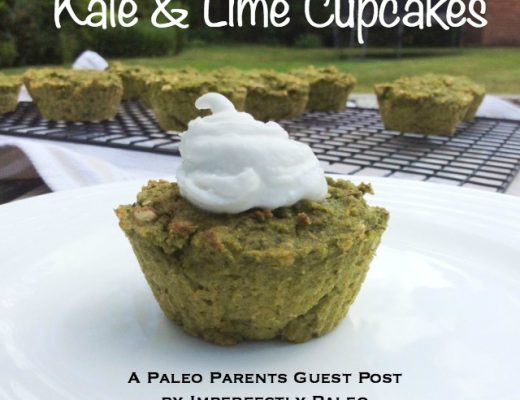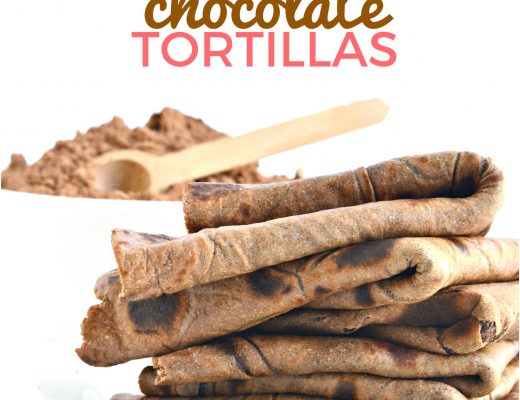Usually on Wednesdays we have a Guest Blogger that shares a recipe with our readers, but today we have a wonderfully researched and documented guest post from Michelle of Happy Paleo Kids about “Why kids need DIRT!” At Paleo Parents Central, we fully embrace this approach to parenting and feel that it has contributed to our own happy, healthy children. This is such an awesome informational article, and we can’t wait for you to read it!
♥♥♥

I always get dirty looks at the park when my daughter’s teething ring falls on the ground and I hand it back to her without washing. I’ve never been the kind of mom who totes around hand sanitizer and now I have science to back me up. Our bodies evolved in conjuncture with other environmental organisms, and an estimated 90 trillion microorganism live on or in the human body. Kids need the microorganism in dirt to promote healthy physical, sensory, and emotional development.
Benefits of letting your kids play in the dirt:
#1 – Improved Immunity
According to researcher Joel V. Weinstock from Tufts University, a baby’s immune system “is like an unprogrammed computer. It needs instruction.” Exposing your child to dirt and germs allows their bodies to develop appropriate “immune regulatory circuits” and antibodies against common pathogens. Research has found that children who are raised in overly sanitized environments are at increased risk for allergies, asthma, and autoimmune illnesses (including type 1 diabetes and multiple sclerosis). In contrast, children raised on farms, with pets, and with more exposure to germs have decreased risk for the same illnesses. [1]
A 2010 study found that an individual’s exposure to infectious microbes during childhood led to lower cardiovascular inflammation in adulthood. [2] Other research has found naturally occurring bacteria on human skin aids in the healing of skin wounds. When we over-wash our skin, we remove this natural bacteria and make it harder for our body to heal those scraped knees and other booboos. [3]

#2 – Improved Gut Functioning
Dirt also improves health by exposing kids to a unique variety of probiotics. Soil Based Organisms (SBO’s) are microorganisms found exclusively in the dirt that aid digestion and improve the intestinal wall lining. Before modern farming we did not have to worry about pesticides and e.coli on our fresh veggies. Our paleolithic ancestors could eat them right out of the garden and ingest a good dose of these SBO’s with their foods. [4]
Probiotics help decrease inflammation throughout the body and improve immune system functioning. Children with autism and ADHD often demonstrate improved behavior when they receive probiotic supplementation. And while research has not yet been conducted on “typically” developing children, it is hypothesized that probiotics improve behavior in learning by decreasing inflammation in the brain and throughout the body (known as the gut-brain axis).
#3 – Improved Sensory Integration
“Sensory Integration” is when bits of information from different senses join together in the brain in order to make sense of the environment as a whole. Exposing your child to many sensory experiences (such as the tactile experience of playing with dirt) allows them to understand the world around them and “tune out” unnecessary information. Increased opportunities to promote sensory integration is associated with improved cognitive development, improved attention, emotion regulation and fine motor skills.
#4 – Improved Mental Health
It’s no surprise that being out in nature makes us happy. Just stepping out into the great outdoors reduces physiological symptoms of stress in children. [5] In addition M. vaccae, a bacteria found in dirt, has been demonstrated to increase serotonin production in children and improve feelings of well-being. [6] That same dirty bacteria decreased anxious behavior and improved learning in laboratory mice.
…So go ahead and let your little piglets role in the mud

If you want your children to grow up healthy, let them go crazy in the dirt a few times a week. Let them make mud pies and don’t freak out if they take a little nibble. Let them eat their apple after it falls on the ground. Even (gasp!) have them eat lunch without washing their hands when they’ve been playing outside. And check out these ideas from Wellness Mama on how to make sure your children are getting enough dirt time.
Recommended Reading: Why Dirt Is Good: 5 Ways to Make Germs Your Friends by Mary Reubush
[author] [author_image timthumb=’on’]http://paleoparents.com/wp-content/uploads/2014/08/Michelle-square-740×740.jpg[/author_image] [author_info]Michelle Fitzpatrick is author of the blog Happy Paleo Kids. Michelle has worked with special needs children and their families for over 13 years to promote development and mental health. She adopted a “Paleo Diet” to lose weight after baby number 3, and quickly saw that the benefits of eating nutrient-rich, plant-and-animal-based foods would benefit her entire family. After applying the Paleo Philosophy to her family, she felt compelled to find a way to bring the science behind how food impacts child development to the masses.
Connect with Michelle: | Blog | Facebook | Twitter | Instagram |[/author_info] [/author]
References
[1] Holbreich, M., et al. (2012). Amish children living in northern Indian have a very low prevalence of allergic sensitization. Journal of Allergy and Clinical Immunology.
[2] McDade, T.W., et al. (2010). Early origins of inflammation: Microbial exposure in infancy predict lower levels of C-reactive protein in adulthood. Proceedings of the Royal Society.
[3] Pastar, A., et al. (2013). Interactions of methacillin resistant staphylococcus and pseudomonas in polymicrobial wound infection. PLoS One: 8(2).
[4] Bisi-Johnson, M.A., et al. (2010). Microbiological and health perspectives on geophagia: An overview. African Journal of Biotechnology.
[5] Kuo, F.E., & Taylor, A.F. (2004). A Potential natural treatment for attention-deficit/hyperactivity disorder: Evidence from a national study. American Journal of Public Health.
[6] Lowry,C.A. et al. (2007). Identification of an immune-responsive mesolimbocortical serotonergic system: Potential role in regulation of emotional behavior. Neuroscience.




